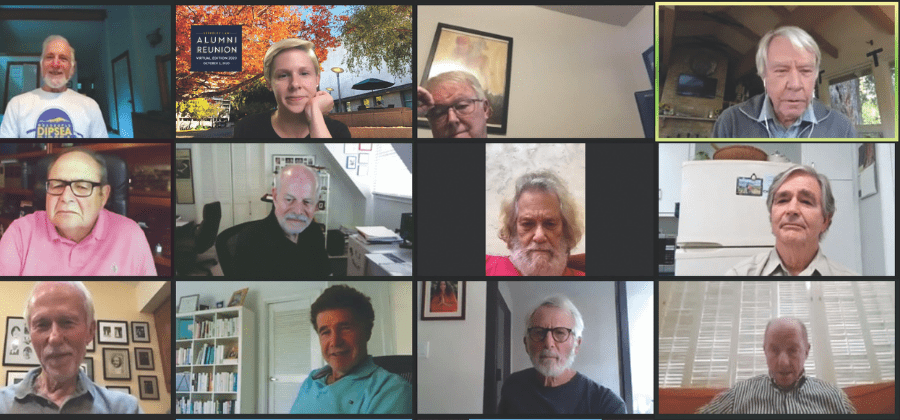
Berkeley Law’s Class of 1970 endured tumultuous times, nationally and on campus. The assassinations of Martin Luther King Jr. and Robert F. Kennedy. The bombing of Cambodia and the killing of four student protesters at Kent State University. Protests and clashes with local police during Stop the Draft Week in 1967 and at People’s Park two years later.
“We at the law school were consumed by the Vietnam War and the disruptions,” says class member Len Unger. “Legal education took a back seat to what really concerned the students.”
He sees clear parallels between their experience and today’s students navigating the COVID-19 pandemic — particularly the uncertainty, both in the moment and about the future.
“Every person lives in a pivotal moment for that person, but Berkeley in the ’60s certainly was more pivotal for more people than most,” says classmate George Forman. “There was little opportunity for frivolous escapades.”
He remembers the distinct uptick in anxiety when male graduate students lost their deferment for military service, and that Professor Mike Smith — who had been a conscientious objector — was a resource for students considering their options to avoid the draft. Unger thinks as many as 10 percent of his classmates quit school and joined the military reserves.
Students were heavily involved in the activism that defined the campus and the city during that time. They joined demonstrations, of course, but also defended protesters before the campus Student Conduct Committee, served as legal observers during protests, and created a community assistance program that provided volunteers to Berkeley Neighborhood Legal Services.
Forman and Unger, who attended their 50th reunion via Zoom in October, also recall a very different law school. Forman says there were few students or faculty of color, and just 27 women, including 17 in their class.
The numerical grading system switched to a “TML” system: T for the top 10%, M for the middle 80%, and L for the lowest 10%.
Forman, who has spent his career representing Native Americans, returned to campus in February 2020 to judge the Native American Law Students Association National Moot Court Competition.
“It was heartening to see how diverse the student body is today, and how young, bright, and enthusiastic everyone seemed,” he says.
Unger’s advice for current students grappling with the disruption caused by the pandemic: make the most of your opportunity, despite the adversity.
“Through it all, we did manage to learn to think and reason as lawyers. We learned to be supportive of our classmates as opposed to being competitive,” Unger says. “My time at law school instilled a sense of confidence in my abilities and many intangibles that I internalized without even knowing that I was doing so.”
— Gwyneth K. Shaw